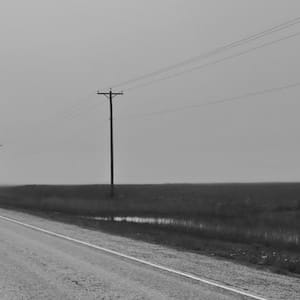what with: Idiom Meaning and Origin
What does ‘what with’ mean?
The idiom "what with" is used to indicate a reason or cause for a certain situation or outcome. It suggests that various factors or circumstances have contributed to the current state or result.

Idiom Explorer
The idiom "with a view to" means having the intention or purpose of doing something. It implies a deliberate action taken with a specific goal in mind.
The idiom "why in the world" is used to express surprise or confusion about something, emphasizing the speaker's disbelief or astonishment. It is often used rhetorically, without expecting a literal answer to the question posed.
The idiom "what's what" means to understand or know the important or essential information about a subject or situation.
The idiom "what's the good of" is used to question the practical value or usefulness of something. It expresses a doubt or skepticism about the benefits or advantages of a particular action or situation.
The idiom "what's in it for me" expresses a selfish perspective or concern about personal gain or benefit in a given situation or proposal.
The idiom "what's going on" is used to inquire about the current situation or events, seeking information or understanding. It's a casual expression commonly used in conversations to ask about what is happening or to express confusion.
"What of it" is an idiomatic phrase that is used to express a lack of concern or indifference towards a situation. It suggests that the speaker does not consider the matter to be significant or important in any way.
The idiom "what is more" is used to introduce an additional and often more important point or piece of information in a conversation or argument.
The idiom "what for" is used to ask someone about the reason or purpose behind their actions. It implies a sense of curiosity or confusion and is often used when questioning someone's behavior or intentions.
The Significance
The idiom "what with" is commonly used in the English language to indicate that there are many factors or circumstances contributing to a particular situation or outcome. It can be traced back to Middle English and is composed of the pronoun "what" and the preposition "with." This phrasal structure conveys the idea of multiple things or events occurring simultaneously, with "what" often substituting for other pronouns like "everything" or "all."
One interpretation of "what with" is that it suggests a sense of overwhelmedness or busyness. It implies that there are so many things happening at once that it becomes challenging to keep track of them all. For example, one might say, "What with work deadlines, family obligations, and personal projects, I hardly have any free time." This usage highlights the various factors contributing to a busy schedule.
Another way to understand "what with" is as a way to explain the cause of a situation or outcome. It suggests that the mentioned factors are the reasons behind an event or consequence. For instance, one might say, "What with the rainy weather and slippery roads, there were many car accidents yesterday." Here, "what with" emphasizes the role of the rainy weather and slippery roads in causing the car accidents.
The idiom "what with" is flexible in its usage and can be adapted to different contexts and situations. It commonly appears in informal conversations and written texts. It is widely used in British English, although it also has currency in American English.
It is important to note that "what with" shares some similarities with other idioms. For example, the idiom "to do with" is used to describe something that is relevant or related to a particular situation. One could say, "What with the upcoming conference and all the preparations we have to do, I'm feeling overwhelmed." Here, the phrase "to do with" indicates the connection between the upcoming conference and the feeling of being overwhelmed.
Example usage
Examples of how the idiom what with can be used in a sentence:
- She was running late to work, what with the traffic and construction delays.
- We couldn't go to the park what with the heavy rain and thunderstorms.
- He's been feeling tired lately, what with the long hours at his new job.
More "Preposition" idioms



